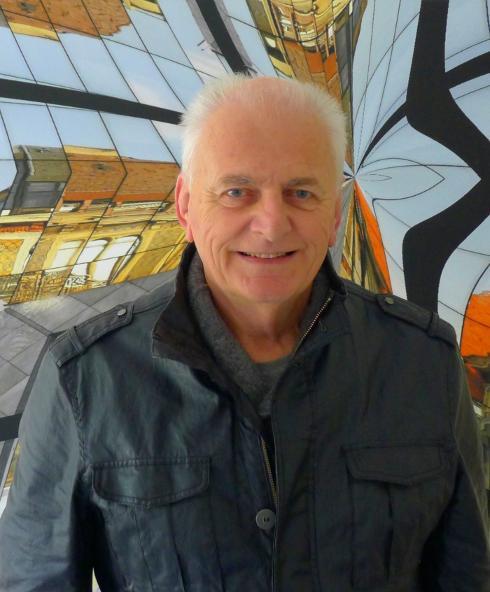

Secciones
Servicios
Destacamos

JENNIE RHODES
Friday, 20 July 2018, 12:00
Philip Crawford is a Probate Genealogist who has given talks about his work to organisations such as The Arts Society and Rotary Club on the Costa del Sol. Philip and his wife, Heulwen, have lived in Estepona for 15 years and have also spent some time living in France. Philip says of his and Heulwen's decision to move to Spain that he can do his work anywhere and that Malaga is "a great place to be as you can fly to a lot of places easily from the airport."
He has been doing his job, which involves finding family members who are set to inherit the estate, or part of the estate of a deceased relative, for 10 years. Before becoming a genealogist, Philip, 74, worked in the computer industry and previous to that in army intelligence. Both, he says, have served him well in his latest career change. "Around 70 per cent of what I do is internet-based and I was used to investigating things while working for the army intelligence."
Philip explains that he has always had "an interest in history" and did a Local History course in Oxford. Then around 15 years ago he explains he was doing some work for a Birmingham History Group when a man from Australia contacted him saying that he had tracked Philip down through his research onto his own family tree.
"I found out all sorts of stories about my ancestors and some of them were quite surprising," Philip comments, adding that he comes from "a family of criminals" as one of his ancestors was "fined for cycling down a hill too fast" and another got into trouble over a hen.
Philip explains that genealogy and indeed probate genealogy have become "a huge business" in recent years, largely thanks to television programmes such as Who Do You Think You Are?, Long Lost Family and Heir Hunters.
Philip's own work has taken him all over the world and to some of the most remote corners on Earth, including the Kenya-Somalia border. Closer to home, he relates the tale of "the lonely man in London who died in a small apartment, had no friends and no known family but left 14.6 million pounds which will now go to the government. Then there was the shock of finding that three beneficiaries and members of the same family whom I had struggled with tracing had all been murdered by their mother!" He adds, "And so it goes on and on!"
Philip says that he is often met with suspicion and many people have thought that he was part of a scam when he contacted them to tell them they were entitled to some kind of inheritance from a relative they have either lost touch with, or in some cases, even knew nothing about.
The expert also points out that until now it has been relatively easy for genealogists to track down relatives as, until the 1960s, moving to a different part of the country, never mind moving abroad, was not very common. However, he says that as populations are more transient tracing people will become far more complicated.
Philip explains that he uses all sorts of lines of inquiry, from social media to vets' records. He says that archivists are "some of the nicest people" he has ever met and has rarely come up against public records offices preventing him from doing his research. He points out, though, that laws and customs obviously vary greatly from country to country and while he is "not a lawyer" himself he has a good network of people who work in the field of law and makes sure he consults them when his work takes him to other countries.
Philip explains the legalities of inheritance in the UK and says there is a surprising number of people who simply don't make a will. When a person dies who has no will, the money is automatically held by the government, but must be released once heirs are found. If no heir is found then the money automatically goes into the government's coffers after 30 years (in England and Wales, and after 10 in Scotland). However, there are two exceptions, Philip points out. In Cornwall the money would eventually go to the Duchy of Cornwall, in other words Prince Charles, and in Lancashire the money goes to the Queen, as owner of the Duchy of Lancaster.
Philip says that people are obviously generally "very pleased" to meet him, "once the initial suspicion has gone". He also says that people often stay in touch with him after he has finished working with them and he gets updates "from all over the world".
Publicidad
Publicidad
Publicidad
Publicidad
Esta funcionalidad es exclusiva para registrados.
Reporta un error en esta noticia

Debido a un error no hemos podido dar de alta tu suscripción.
Por favor, ponte en contacto con Atención al Cliente.

¡Bienvenido a SURINENGLISH!

Tu suscripción con Google se ha realizado correctamente, pero ya tenías otra suscripción activa en SURINENGLISH.
Déjanos tus datos y nos pondremos en contacto contigo para analizar tu caso

¡Tu suscripción con Google se ha realizado correctamente!
La compra se ha asociado al siguiente email
Comentar es una ventaja exclusiva para registrados
¿Ya eres registrado?
Inicia sesiónNecesitas ser suscriptor para poder votar.